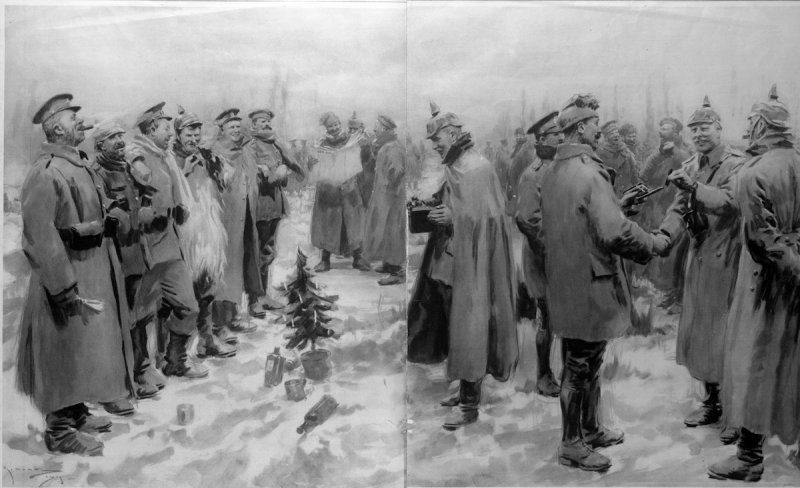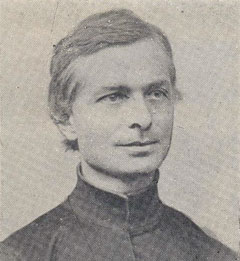
All is Bright: The Story Behind Silent Night
Once upon a time, there lived a poor girl named Anna. Anna’s only talent was weaving. She lived with her mother in Salzburg, Austria until, on one fateful day, she met a soldier named Mohr who was stationed in her town. As their friendship grew, she fell in love with the dashing man, and felt nothing but joy when she learned she was carrying his baby. Little Joseph was born on December 11, 1792, but her elation soon turned to heartbreak when her only love, the father of her child, abandoned them both to an unknown future.
Ann had already given birth to two illegitimate children, so this was her third “carnal offence”. She was sentenced to a fine of nine florins. This was as
much as she earned in a whole year but failure to pay would have meant incarceration in the workhouse.
A way out of this dire situation came in the unlikely form of the town executioner. Franz Joseph Wohlmuth had beheaded more than 50 people and tortured confessions out of another 100. He was a frightening man and despised by the community. But he was rich, and he offered to pay Anna’s fine in return for becoming the child’s godfather.
This was a difficult start for young Joseph. Not only was he illegitimate, but he was also the executioner’s godson. No school would accept him, nor would he be able to find a position as an apprentice. 
Anna worked tirelessly to provide her son. One day, Johann Nepomuk Hiernle, a Benedictine monk and cathedral choirmaster was coming down the steps and happened to hear Joseph singing. He was so thrilled by his voice that he immediately went in search of the boy’s mother and told her that such musical talent had to be trained or it would be wasted. He arranged for Joseph to attend the Abbey School of Kremsmunster. There, Joseph surrendered to the priesthood and was assigned to be an assistant pastor at St. Nicholas Church several miles away.
While serving the needs of the community, Joseph met a man named Frantz Gruber. The two immediately hit it off. Franz was the son of a weaver and loved music…an endeavor that his father despised.
On the 23rd of December 1818, the community was preparing for Christmas and Joseph returned from a visit at friend’s house whose wife had just given birth to a child…a baby boy. Joseph stopped by the riverside and reflected on the joy of the child’s birth while tormented memories of his own past rose up to haunt him. The pain, the sacrifice of his mother, the taunts from childhood chums battered his heart afresh until he sat trembling on the bank of the river, his heart overwhelmed by the mercy of God that had transformed what should have been a hopeless situation into a life of peace and purpose.
Joseph pulled out a piece of paper from his pocket and scratched out a simple poem that recalled the mysterious, awe-inspiring arrival of Jesus.
Silent night, holy night!
All is calm, all is bright.
Round yon Virgin, Mother and Child.
Holy infant so tender and mild,
Sleep in heavenly peace,
Sleep in heavenly peace
When he finished penning the haunting verses, Joseph walked back to the rectory where he learned the church’s organ that was damaged by mice. With Christmas Eve mass approaching, and no funds available to fix the damaged organ, Joseph fell into despondency.
He paid a visit to his friend Franz and handed him the scrap of paper that bore the verses to “Silent Night, Holy Night”. Franz was unconcerned about the damaged organ and was struck with an idea. Why not use a guitar to accompany the verse? Franz composed the melody and completed it just before mass.
On Christmas Eve of 1818, a small congregation first heard the stirring words of “Silent Night”.
Its popularity quickly spread across Austria. When the King of Prussia Frederick Wilhelm IV heard the song at the Berlin Imperial Church, he ordered it to be sung throughout the kingdom at Christmas pageants and services.
And the story gets better. On December 24, 1914, during the thick of the conflict of World War I, a spontaneous cease fire occurred up and down the Western Front. Both sides put down their weapons upon hearing “Silent Night” sung across the lines. The soldiers played football and took turns singing “Silent Night” in their native languages.

No matter the past, no matter our mistakes, no matter what darkness threatens to overwhelm, the light and peace of Jesus shines through…transforming lives, birthing joy, and scattering the night into the light of hope.
